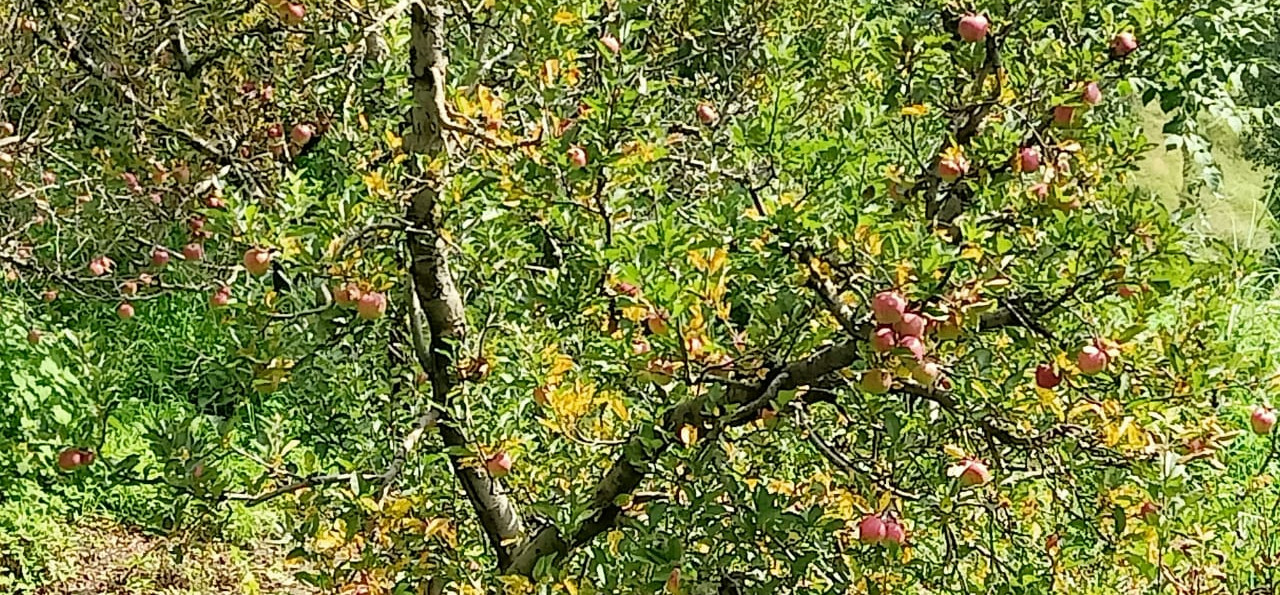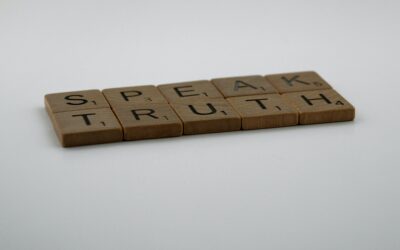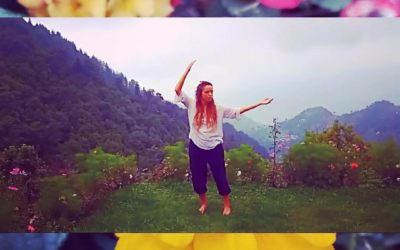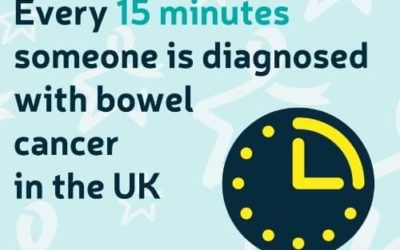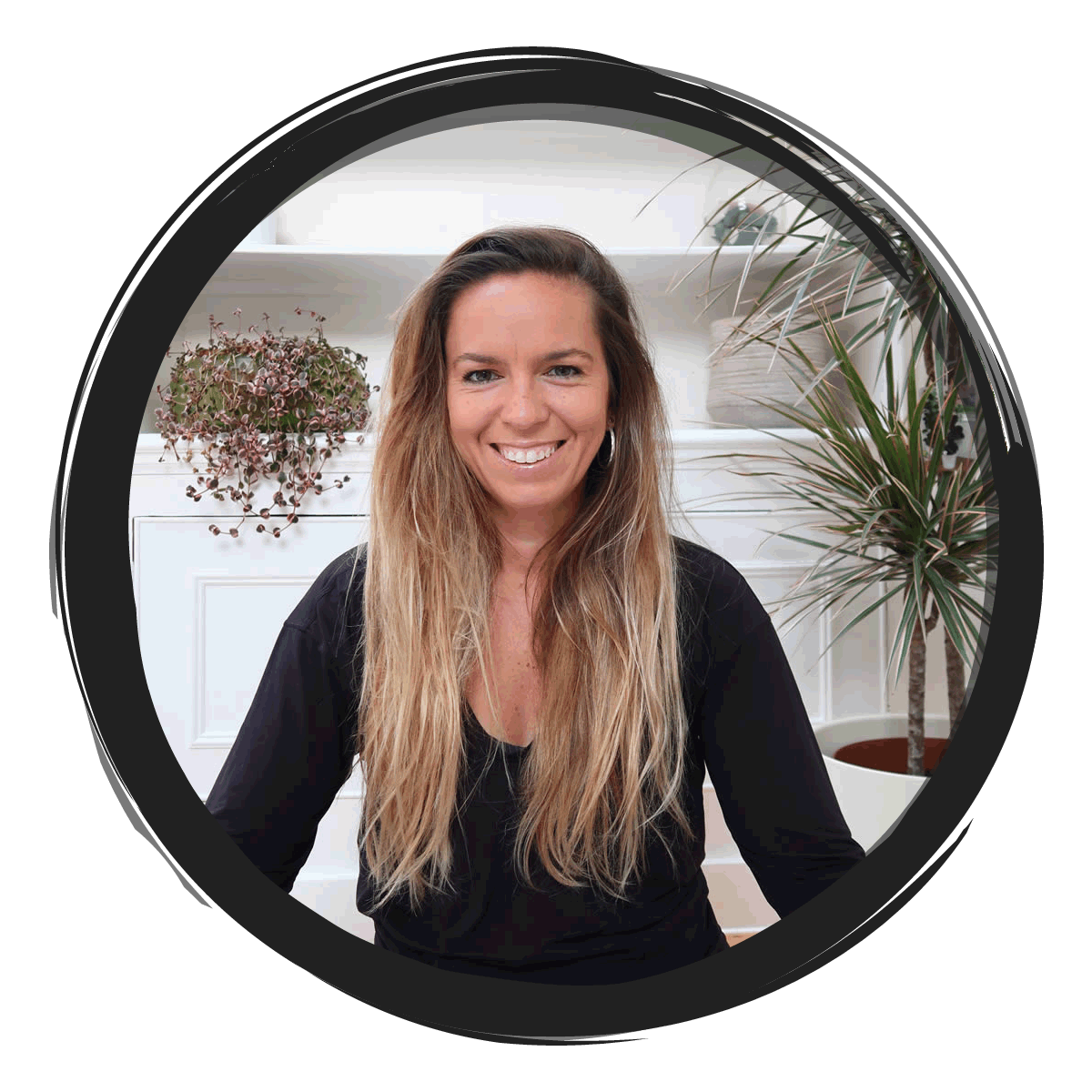Do you often experience a racing mind, poor digestion, anxiety or brain fog?
If so, you may have an Earth imbalance.
Earth is the time of late summer when Nature transitions from Fire element (ruled by the Heart) to Earth element (ruled by the Spleen/Stomach). At this plentiful time of year, Earth gives one last push to encourage the final flourishing of Life at the end of summer’s heat.
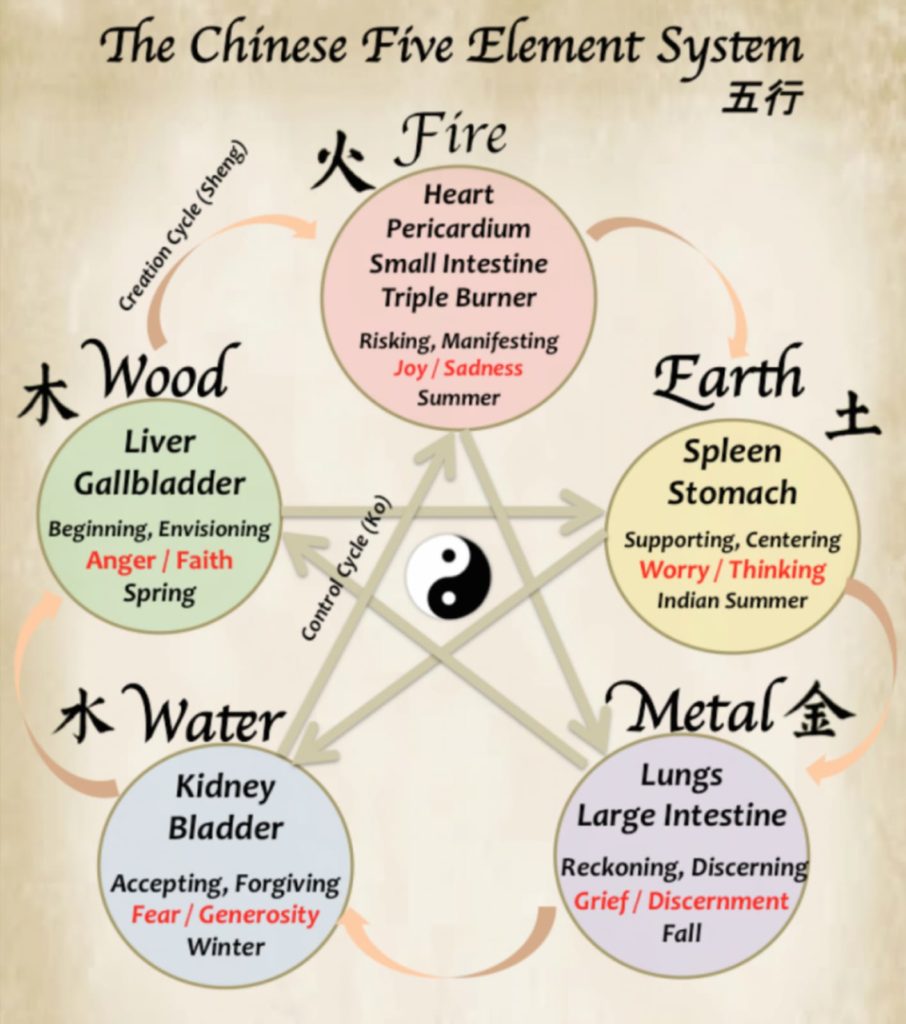
Having a balanced Earth element is important because it acts as a container for the other four elements.
“Knowing how to treat the center is knowing how to bring all networks into balance.” – Ming Dynasty (AD 1368-1644)
The Earth organs of Spleen and Stomach are found on the front of the body, highlighting their role in helping us move (using eyes, arms and legs) towards, take in and then process the nourishment we need.
Late summer is a good time to take stock of how we nourish ourselves which includes sustenance, ideas, thoughts and the people around us.
“It is a time when we can sit in the centre of mother earth’s lap where there is the fullness of the harvest and the stability of care and understanding…The earth has the ability to digest and transport the caring and nourishing thoughts of our heart.” *
In 1180 CE, famous Chinese physician Li Dong Yuan founded the Earth School because he believed that the etiology of most diseases was a result of injury to the digestive system. According to this school of thought, the Spleen and Stomach are at the center of one’s health.
The Earth School teachings remain relevant in today’s practice, especially in light of the recent research on the relationship between gut health and immunity. (Source)
Here’s some tips to support your Earth organs for optimal functioning of your whole being.
- Meditate. Chewing over things in the mind will churn up your stomach too. If your experience digestive issues it could be the result of an overactive mind. Calm the Yi (also known as the Intellect) the spirit of your Spleen organ, with this meditation for the Earth element.
- Move your body. Regular exercise is important for the Earth organs. “Without movement, the stomach tends to feel stuck and stagnant, leaving little energy for the spleen to transport.” **
- Eat well. Seasonal foods help to keep your body in tune with Nature. In late summer an abundance of fruits and vegetables are ready to be harvested and consumed. Nourish yourself well ahead of the colder autumn and winter months.
- Spend time in Nature. Enjoy the last of summer’s fiery heat. Observe Nature where you live – what do you notice? Dig your toes into the soil, take a swim, feel the wind on your face and the sun on your skin. Breathe in and out, allowing Nature to transform you as it journeys through its own transitions. (Source)
- Work this acupressure point. Strengthen your self-healing knowledge by pressing ST36 or ‘Three Mile Yin’ on the Stomach meridian. In ancient times, soldiers in the Chinese army pressed this point to give their legs a boost. ST36 is one of the most important points on the body. Use it to help alleviate digestive problems, to energise the whole system when feeling depleted, and to relieve knee issues.
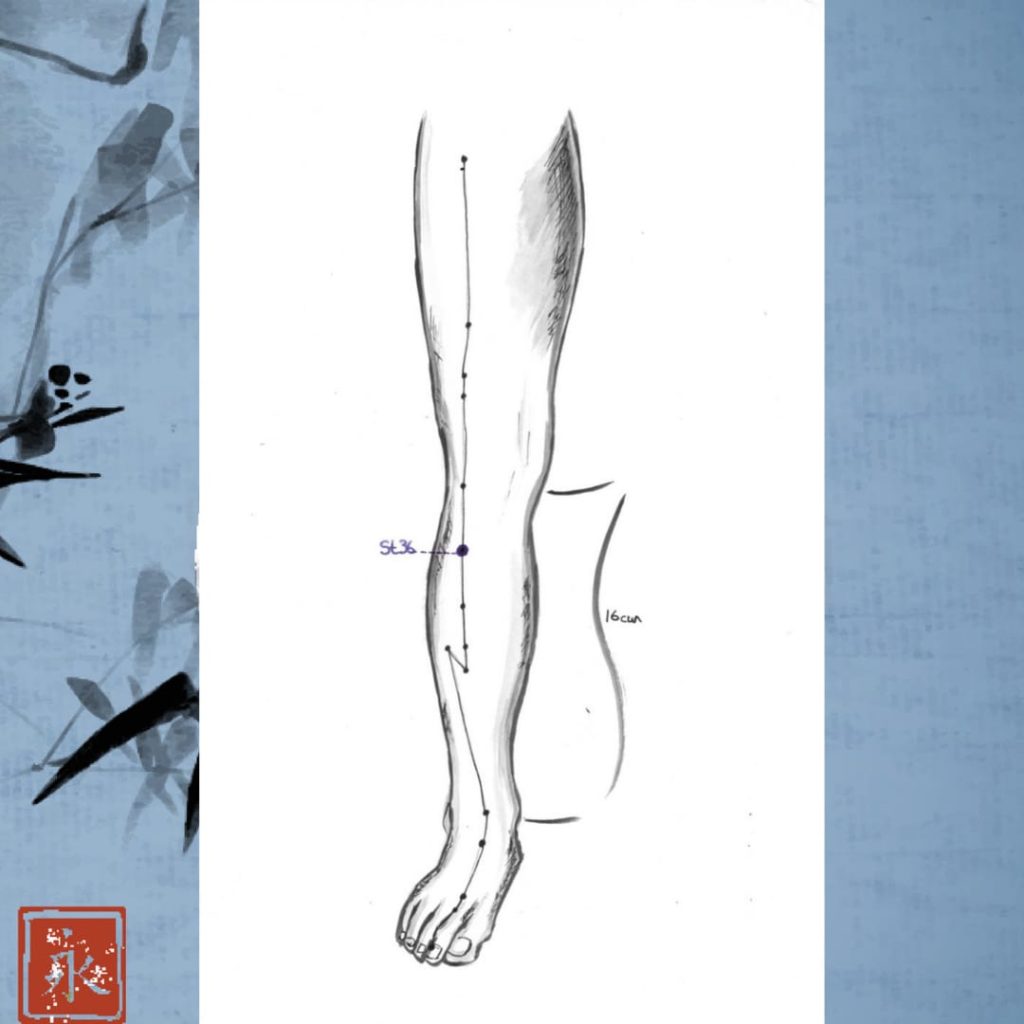
Guidance: Find the point 3 cun below the outside lower edge of the kneecap; the “cun” measurement is about a thumb width; 2 fingers are considered 1.5 cun; 4 fingers are considered 3 cun. Press gently as you breathe out, feel for warmth or tingling. An achy pain/pleasure sensation indicates you’re in the right place. Work the point on either or both legs, holding for as long as feels good.
To discover more about using acupressure points BOOK a Guided Self-Shiatsu session. We will explore your current health picture, your goals and examine the most appropriate practices from Eastern Medicine to support your health and happiness.

Thank you to my incredibly talented friend Laura for the beautiful sketches! Find more of them on my Instagram channel or in my Go Slow Friday Letters – SIGN UP HERE.
Related:
Acupressure Insights: Heart Protector 8
Sources:
* Debra Kaatz – Characters of Wisdom, 2001, Earth chapter
** Mimi Kuo-Deemer, “Qi gong and the Tai Chi Axis”, 2018

